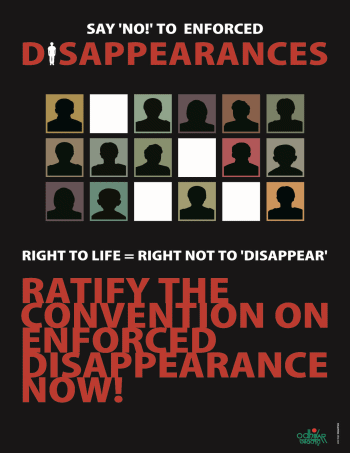Ruma (not her real name), a school teacher by profession and a mother of two, living in Dhaka, married Mainul eight years ago. Soon after, Mainul started harassing her, calling her an ‘ugly’ woman – because of her dark complexion. Her mother-in-law and other members of her husband’s family used to verbally abuse her almost every day, saying that her skin is ‘moyla’ (dirty); and expressed their anger and frustration, and thought that Mainul had bad luck as he was not able to marry a ‘beautiful’ woman–meaning a fair-complexioned woman. Ruma tried very hard to be seen as beautiful in the eyes of her husband and in-laws and experimented to see how she could look fairer. She started buying brand name fairness creams, hoping to make her skin lighter as she started to believe that fair meant lovely, as the advertisements say. She regularly watched fairness cream advertisements on television, read about them on bill boards and newspapers and wanted to be as fair as the models in the advertisements. Unfortunately, nothing really worked or showed much of a result. Her husband and in laws demanded a huge amount of dowry repeatedly – apparently as a retaliation for her darker skin. After her marriage, Ruma’s parents tried to satisfy her husband and in-laws by giving them dowry at different times. But they pressured her and her family for more! Finally, one day she was nearly beaten to death, after which she divorced her husband. Her minor children were taken away by Mainul and her in laws and for the last three years, she has not been able to see them, not even for a day.
This is not a single incident- there are many such incidents with varying degrees of violence existing in Bangladesh and other countries victimising those with darker skin. The dominant mind set regarding fair skin colour complex is so deep-rooted in our societies – that it is one of the causes of violence and abuse against women. Girls and women with darker skin are often humiliated and harassed. This is even more prevalent in rural areas. In Bangladesh, the dowry system is unfortunately very widespread. It is one of the major reasons for domestic violence- it causes injury or death of many women every year. Despite the Dowry Prohibition Act of 1980 and Nari O Shishu Nirjatan Daman Ain of 2000 (amended 2003), this practice is going on. Among these existing dowry related problems and other forms of violence against women, demand for fairer skinned women, makes women’s human rights situation more untenable. As a result many ‘darker skinned’ women’s families are forced to pay dowry.
In Bangladesh fairness cream advertisements have become prolific. The marketing of fairness creams has become so widespread that even in remote villages, one can find women and girls using fairness creams- available even in smallest of shops. There are many beauty parlours in Bangladesh where it has become a big business to use not only fairness creams, but also fairness ‘polishes’ and fairness ‘glow’. All this is giving a message to the people of Bangladesh that women with fair skin colour are most desirable, although generally, Bangladeshis are of darker complexion as majority of them are ethnologically the descendants of the Dravidians and their ancestors have time and again faced invasions by the fairer skinned Arians and colonisers. Exploiting the dominant colonised mindset regarding the fondness for fair skin colour, among people with mostly darker skin, multinational companies are promoting this social injustice and this needs to stop. This directly affects the lives of women- many of whom are facing discrimination, humiliation and violence for their skin colour. This is adversely affecting the self-image of millions of women and adolescent females, which in turn is adversely affecting social progress via women’s education, intelligence and professional achievements. Advertisements of whitening creams create stereotypical roles of women when advertisements show how a darker girl does not get any marriage proposals but ends up getting them when she turns fairer using fairness creams. Such TV ads deliver the messages that white skin correlates with beauty, social approval and success. They must be banned.
Additionally, these fairness creams pose significant health hazards as many of them contain mercury and are banned in many countries. Mercury is generally a common ingredient of these creams as it is believed, without much scientific evidence, that mercury may block the formation of melanin, the skin pigment responsible for darker skin colours. However mercury is also toxic and if it is use by pregnant women, may lead to significant birth defects. Mercury products applied to the skin can cause kidney and nerve damage.
Human rights activists are concerned that the continued promotion and sale of fairness creams by multinational corporations and their local agents, based on a regressive view of the skin colour of women, are creating and nurturing an atmosphere where discrimination, abuse and violence against women are likely to grow. November 25, 2015, was the 16thyear of International Day for the Elimination of Violence Against Women. Keeping in mind this special day, we will like to ask the government to ban all commercials and sales of fairness creams in Bangladesh. And let us embrace the16th International Day for the Elimination of Violence Against Women along with this slogan: “Dark is Beautiful! Stop discrimination and violence against women!”
Taskin Fahmina is a Gender Consultant of Odhikar. She can be reached by taskin133@gmail.com
http://www.nature.com/jid/journal/v18/n2/full/jid195216a.html
http://www.who.int/ipcs/assessment/public_health/mercury_flyer.pdf




